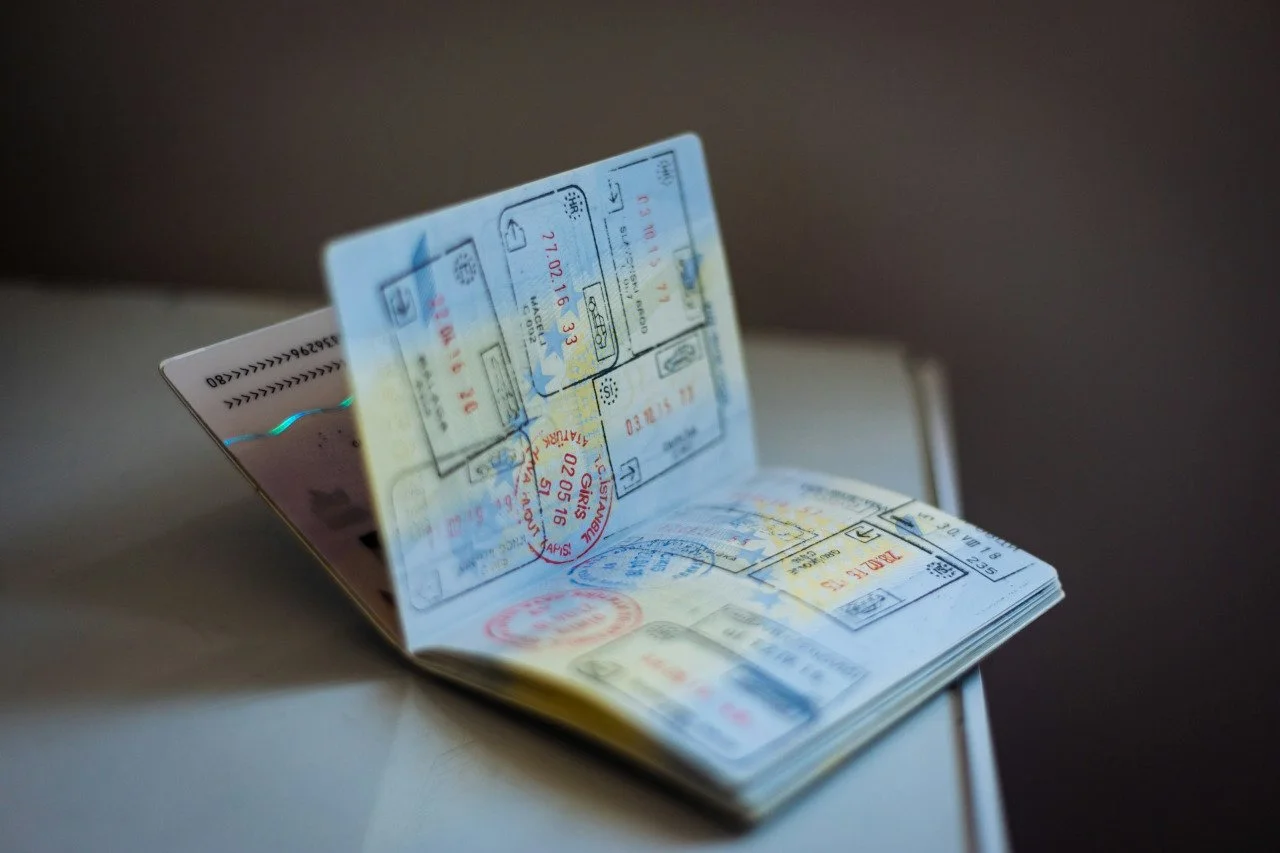How to Cross a Border Without a Visa: Tips for Gray Man, Prepper, and Bug‑Out Scenarios
Border Inspection
In today's world, mobility and the ability to quickly change your location can become critically important skills. For prepared individuals-preppers, followers of the gray man concept, and those with a bug‑out plan-knowing visa‑free destinations is not just a travel convenience, but an element of personal safety and strategic planning.
A visa‑free regime allows citizens of certain countries to cross a border and stay in another country without obtaining a visa in advance. This can be useful in situations where there is limited time to arrange documents, or when circumstances require rapid relocation.
It is important to emphasize that in this article we discuss only legal ways to cross a border without a visa. The purpose of this material is to provide reference and educational information to help prepare for travel or emergency situations without violating current laws.
Disclaimer
Important: We do not encourage breaking laws or border‑crossing regulations. All information provided is for educational and reference purposes only. Every individual bears personal responsibility for their actions and their consequences. Before any travel or relocation, always check the current legal requirements and border control regulations.
What Does "Crossing a Border Without a Visa" Mean
Visa‑Free Regime Explained
A visa‑free regime is an official agreement between two or more countries that allows citizens of those states to enter each other's territory without obtaining a visa in advance. Such arrangements usually set a limited period of stay (for example, 30, 60, or 90 days) and certain conditions: possession of a valid passport, proof of financial means, a return ticket, or accommodation booking.
The main advantage of visa‑free travel is the speed and simplicity of crossing the border, which is especially important when time is of the essence.
The Difference Between Visa‑Free Entry and Illegal Border Crossing
It is crucial to clearly distinguish between legal visa‑free entry and illegal border crossing.
Visa‑free entry occurs with the consent of both countries and is regulated by international agreements and domestic laws. You pass through official border control, receive a stamp in your passport, and comply with the established rules of stay.
Illegal border crossing is entering or leaving a country without the permission of border authorities, outside official checkpoints, or using forged documents. This is a violation of the law and can lead to serious legal consequences, including deportation, fines, or criminal prosecution.
Examples of Countries Offering Visa‑Free Entry for Certain Passports
The list of visa‑free destinations depends on citizenship and the international agreements in force at the time of travel. For example:
For Canadian citizens: visa‑free access to more than 180 countries, including EU and Schengen Area states (up to 90 days within a 180‑day period), the United Kingdom, Japan, Australia, New Zealand, Chile, and many others.
For EU citizens: most countries worldwide, including much of North and South America, parts of Asia, and Oceania.
For U.S. citizens: visa‑free access to more than 180 countries, including the United Kingdom, EU states, Australia, New Zealand, and Japan.
Note: Visa‑free country lists change depending on political circumstances and international agreements, so always check up‑to‑date information on official foreign ministry or border service websites before traveling.
Gray Man, Prepper, and Bug‑Out: Why It Matters
Gray Man - Remaining Unnoticeable While Traveling
The Gray Man concept is about blending into your surroundings and avoiding unnecessary attention. When crossing a border, even under a visa‑free regime, this means:
Dressing and behaving like an ordinary traveler.
Avoiding displays of expensive gear or large amounts of cash.
Responding to border officers' questions calmly and confidently.
Remaining inconspicuous reduces the risk of additional checks and helps you pass through control faster, especially in stressful or unstable conditions.
Prepper - Planning for a Crisis
For preppers, knowing visa‑free destinations is part of a long‑term safety plan. In a crisis situation-natural disasters, political instability, technological accidents-there may be no time to obtain a visa.
A prepared traveler will:
Compile a list of countries accessible without a visa.
Keep copies of important documents in a secure location.
Have several alternative routes planned, taking into account possible border closures.
Such planning allows for quick and confident action when circumstances demand immediate decisions.
Bug‑Out - Evacuation Routes Without a Visa
A bug‑out is a pre‑planned evacuation from a danger zone. If the plan includes countries with visa‑free entry, relocation becomes much easier:
No time is wasted on obtaining a visa.
Multiple destination options are available depending on the situation.
The risk of being blocked at the border due to missing documents is reduced.
A visa‑free evacuation route is an additional guarantee that, in a critical moment, you can quickly leave a dangerous area.
Legal Ways to Cross a Border Without a Visa
Passport
Using International Visa‑Free Agreements
Many countries enter into bilateral or multilateral agreements that allow their citizens to travel without a visa. Such arrangements regulate:
The maximum length of stay (usually 30, 60, or 90 days).
Entry requirements (valid passport, return ticket, proof of financial means).
The possibility of extending the stay in exceptional cases.
For prepared individuals (preppers, gray man), knowing these agreements makes it possible to compile in advance a list of countries that can be reached quickly and without additional bureaucratic procedures.
Temporary Humanitarian Corridors
In cases of armed conflict, natural disasters, or other crises, states may open humanitarian corridors. These are specially designated routes that allow safe border crossing without a visa and, in some cases, even without standard travel documents.
Such corridors usually operate for a limited time and are intended for:
Evacuating civilians.
Delivering humanitarian aid.
Providing safe passage out of a danger zone.
It is important to remember that the conditions for using humanitarian corridors are determined by international agreements and government decisions, and they may change daily.
Entry with Official or Special Documents
Certain categories of individuals may cross a border without a visa by using official or special documents:
Diplomatic and service passports.
Identification for employees of international organizations.
Documents for members of official delegations or international missions.
This method is not applicable to most travelers, but in specific professional or official circumstances, it can serve as a legal basis for visa‑free entry.
Transit Zones and Short‑Term Entry
In many countries, there are rules that allow travelers to remain on the territory without a visa during transit:
Airport transit - if you change planes in an international airport and do not leave the transit zone, no visa is required.
Short‑term transit entry - some countries allow entry for a few days without a visa for travelers en route to a third country.
These rules are especially useful in bug‑out scenarios, when you need to quickly change your route and use a country as a temporary stopover.
Preparing for Travel to a Visa‑Free Country
Checking Current Regulations
Even if a visa‑free regime is in place between countries, entry conditions can change rapidly due to political events, public health situations, or shifts in migration policy. Before traveling, you should:
Check the official website of the Ministry of Foreign Affairs or the border service of your destination country.
Confirm the permitted length of stay and document requirements.
Learn about possible additional conditions (such as mandatory health insurance, vaccination certificates, or proof of funds).
Up‑to‑date information is the key to avoiding unpleasant surprises at the border.
Required Documents Even Under Visa‑Free Travel
A visa‑free regime does not mean you can travel without documents. In most cases, you will need:
A valid passport (biometric or standard, depending on the country's requirements).
A return ticket or proof of onward travel plans.
Proof of financial means (cash, bank statement, credit/debit cards).
Proof of accommodation (hotel booking, invitation from a private host).
Health insurance, if it is mandatory for entry.
Even if a border officer does not always request these documents, having them significantly reduces the risk of being denied entry.
Gray Man Conduct at the Border
The Gray Man approach to travel is about remaining inconspicuous and avoiding suspicion. At the border, this means:
Looking like an ordinary tourist or business traveler.
Avoiding nervous behavior, sudden movements, or excessive talkativeness.
Answering questions clearly, calmly, and to the point.
Not showing unnecessary documents or items unless requested.
Following a dress code that does not make you stand out from the crowd.
This demeanor helps you pass through control quickly and reduces the likelihood of additional checks.
Risks and Limitations
Possibility of Being Denied Entry
Even under a visa‑free regime, a border officer has the right to refuse entry. Reasons may include:
Lack of proof of travel purpose.
Suspicion of intent to work without authorization.
Problems with documents or failure to meet entry requirements.
Previous violations of immigration rules.
Refusal of entry is usually accompanied by deportation and, in some cases, a ban on re‑entry for a set period.
Limits on Length of Stay
Visa‑free regimes always have time limits. The most common is 90 days within a 180‑day period, but in some countries, the period may be shorter or longer.
It is important to:
Keep track of your entry and exit dates.
Remember that exceeding the allowed stay by even one day can be considered a violation.
Consequences of Overstaying
Violating the permitted length of stay can result in:
Fines.
Deportation.
A ban on entry for several years.
Difficulties obtaining visas in the future.
In some countries, overstaying may be treated as a criminal offense, leading to prosecution.
Why People Risk Illegal Border Crossings - When Preserving Life Outweighs Obeying the Law
History records many cases where people knowingly broke the law by crossing borders illegally. This most often happens when:
There is a direct threat to life due to war, persecution, or natural disasters.
Official evacuation routes are blocked or unavailable.
There is no time to obtain the necessary documents.
In such circumstances, a person's priority becomes preserving life and ensuring the safety of loved ones, even if it means breaking the law.
At the same time, it is important to remember that even in critical situations, illegal border crossing carries serious risks - from criminal liability to dangers to health and life during the attempt itself.
Liability for Illegal Border Crossing
Administrative Liability
In most countries, crossing a border outside official checkpoints or without the required documents is considered an administrative offense. The most common consequences include:
Fines - the amount depends on the laws of the specific country and the circumstances of the violation.
Deportation - forced return to the country of origin or the last country of residence.
Entry ban - may be imposed for several months, several years, or, in some cases, permanently.
Criminal Liability
In some countries, illegal border crossing is treated as a criminal offense. This means the violator may face:
Imprisonment - from several months to several years, depending on the severity of the offense and the presence of aggravating factors (for example, document forgery, group crossing, smuggling).
Criminal record - which will affect the ability to obtain visas and permits in the future.
Examples from Different Countries
European Union - in most member states, illegal border crossing is punishable by fines and deportation, but in cases of repeated violations or the use of forged documents, imprisonment is possible.
United States - a first illegal entry usually results in deportation and a re‑entry ban of 3-10 years; re‑entry after deportation can lead to imprisonment.
Asian countries - in some states (for example, Singapore, Malaysia), penalties for illegal border crossing are extremely severe, including long prison terms and large fines.
Why the Risk Is Not Worth the Outcome
Illegal border crossing may seem like a quick solution in a critical situation, but the consequences often far outweigh any potential benefits:
Loss of the right to enter legally in the future.
Risk of criminal prosecution.
Danger to life and health during the attempt.
Complications for future travel and document processing.
Legal routes, even if they require more time and effort, ultimately preserve freedom of movement and the traveler's reputation in the eyes of border authorities.
FAQ
Q: Can you cross the border without a visa into any country?
A: No. Visa‑free regimes apply only between certain countries and for citizens of specific states. Before traveling, you must check the current list of visa‑free destinations for your passport.
Q: If a country is visa‑free, do I still need a passport?
A: Yes. In most cases, a valid passport (often biometric) is required. Some countries may accept an ID card, but this depends on specific agreements.
Q: Can I be refused entry even under a visa‑free regime?
A: Yes. A border officer has the right to refuse entry if you cannot confirm the purpose of your trip, do not have a return ticket, lack sufficient funds, or are suspected of intending to violate the terms of stay.
Q: Can I use a tourist visa‑free entry to work or live permanently?
A: No. Visa‑free regimes usually allow only short‑term stays for tourism or business purposes. To work or reside long‑term, you need the appropriate visa or permit.
Q: If my family's life is in danger, can we cross the border illegally?
A: From a legal standpoint - no, it is still a violation of the law. However, under international law, there is the concept of the right to asylum and refugee protection. If you are in a situation where there is a real threat to life or freedom, you should contact official border checkpoints or representatives of international organizations (such as UNHCR) as soon as possible and declare your intention to seek asylum. This provides a chance for legal protection, even if you do not have a visa.
Q: Can visa‑free rules change during my trip?
A: Yes. Political and security circumstances can change very quickly. Therefore, it is important to monitor official announcements from foreign ministries and border services even while abroad.
Conclusion
Knowing visa‑free destinations is not just a travel convenience but an important element of personal preparedness for those who follow prepper or gray man principles, or who have a bug‑out plan. In crisis situations, such knowledge can be the key to fast and safe relocation, saving both time and resources.
At the same time, it is essential to remember that any actions related to crossing an international border must be carried out strictly within the law. Illegal methods, even in difficult circumstances, carry serious risks - from losing the right to travel in the future to facing criminal liability.
A responsible approach means:
Always checking the current entry requirements.
Having prepared documents and alternative routes.
Acting calmly, thoughtfully, and without breaking the law.
Remember: true preparedness is not only knowing where you can go without a visa, but also being able to do so safely, legally, and with respect for the laws of the country you are visiting.
Official Websites for Border Crossing Rules and Visa‑Free Travel Information
| Organization / Country | Website | Purpose |
|---|---|---|
| UNHCR – United Nations High Commissioner for Refugees | https://www.unhcr.org | Information on the right to asylum and refugee protection |
| IATA Travel Centre | https://www.iatatravelcentre.com | Up‑to‑date entry and transit requirements for all countries |
| European Commission – Migration and Home Affairs | https://home-affairs.ec.europa.eu | Official Schengen Area travel and visa policy information |
| Canada – Immigration, Refugees and Citizenship Canada (IRCC) | https://www.canada.ca/en/immigration-refugees-citizenship.html | Visa‑free entry rules and immigration services for Canada |
| United States – Customs and Border Protection (CBP) | https://www.cbp.gov | U.S. border entry requirements and customs regulations |
| United Kingdom – UK Border Control | https://www.gov.uk/uk-border-control | Official UK border entry rules and procedures |
| Japan – Ministry of Foreign Affairs | https://www.mofa.go.jp | Visa‑free travel and entry requirements for Japan |
| Australia – Department of Home Affairs | https://immi.homeaffairs.gov.au | Visa and immigration information for Australia |
| New Zealand – Immigration New Zealand | https://www.immigration.govt.nz | Visa‑free entry rules and immigration services for New Zealand |
| Chile – Servicio Nacional de Migraciones | https://serviciomigraciones.cl | Official immigration and visa‑free travel information for Chile |
Looking for more? Check out our other pieces on gray man, bugout, and prepper skills
Emergency Evacuation Planning: How to Choose the Right Country and Prepare a Go-Bag
Introduction to Survival and Strategic Evacuation: Bugout 101







